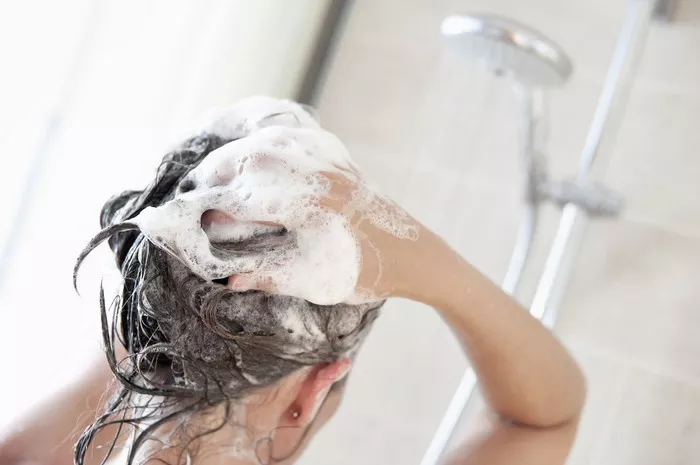Hair transplants are a life-changing solution for individuals dealing with hair loss, offering natural-looking results and a boost in confidence. However, the recovery process can come with some discomfort, including itching. Itching after a hair transplant is a common and often frustrating side effect, but it can be managed effectively with the right strategies and care. In this comprehensive guide, we will explore the causes of post-transplant itching, practical methods to alleviate it, and expert advice to ensure a smooth and comfortable recovery.
Understanding Post-Transplant Itching
Itching is a common side effect following a hair transplant, and it can occur at different stages of the recovery process. Here’s what you need to know about why it happens and how to manage it:
Causes of Post-Transplant Itching
Healing Process
- Wound Healing: As the scalp heals from the incisions made during the transplant, it can become itchy. This is a natural part of the healing process as new skin cells form and replace damaged tissue.
- Scab Formation: Scabs often form over the transplanted areas as part of the healing process. As these scabs begin to dry and flake off, they can cause itching.
Dry Skin
- Dehydration: The scalp can become dry and dehydrated after a hair transplant, especially if you live in a dry climate or use certain hair care products.
- Lack of Moisture: Insufficient hydration can lead to dry, itchy skin on the scalp.
Allergic Reactions
- Product Sensitivity: Some individuals may be sensitive to the ingredients in post-transplant hair care products, such as shampoos, conditioners, and topical treatments.
- Medication Side Effects: Certain medications prescribed after a hair transplant, such as antibiotics or anti-inflammatory drugs, can cause itching as a side effect.
Nerve Regeneration
- Nerve Growth: As nerves in the scalp regenerate after the transplant, they can sometimes send signals that result in itching sensations.
Duration of Post-Transplant Itching
The duration of post-transplant itching can vary from person to person, but it generally follows a predictable timeline:
Immediate Post-Operative Period (0-3 Days)
- Minimal Itching: In the first few days after the procedure, itching is usually minimal. The scalp is still numb from the local anesthesia, and the focus is on rest and elevation.
Early Recovery Period (4-7 Days)
- Increased Itching: By the end of the first week, itching may become more noticeable as the scalp begins to heal and scabs start to form.
Mid-Recovery Period (2-3 Weeks)
- Peak Itching: The second to third week is often when itching is most intense. This is when scabs are drying and falling off, and the scalp is actively healing.
Late Recovery Period (4-6 Weeks)
- Gradual Reduction: By the fourth to sixth week, itching should gradually subside as the scalp continues to heal and new hair starts to grow.
Managing and Reducing Post-Transplant Itching
While some degree of itching is inevitable, there are several steps you can take to manage and reduce it:
Follow Post-Operative Instructions
- Rest and Elevation: Follow your surgeon’s instructions for resting and keeping your head elevated. This can help reduce swelling and promote faster healing.
- Avoid Scratching: Resist the urge to scratch the scalp, as this can damage the transplanted grafts and delay healing. Instead, gently pat or tap the itchy areas with your fingertips.
Use Gentle Hair Care Products
- Sulfate-Free Shampoo: Use a gentle, sulfate-free shampoo recommended by your surgeon. Sulfates can be harsh and drying, exacerbating itching.
- Moisturizing Conditioner: Apply a moisturizing conditioner to the scalp to keep it hydrated and reduce dryness.
- Post-Transplant Solutions: Use any post-transplant solutions or sprays prescribed by your surgeon to soothe the scalp and promote healing.
Maintain Scalp Hydration
- Hydrating Masks: Apply a hydrating hair mask or scalp treatment once a week to nourish and moisturize the scalp.
- Aloe Vera: Aloe vera gel can be applied to the scalp to soothe itching and reduce inflammation. Ensure it is pure aloe vera without added fragrances or irritants.
- Coconut Oil: Coconut oil can be used to moisturize the scalp and reduce itching. Apply a small amount to the scalp and massage gently.
Cold Compresses
- Application: Apply a cold compress to the itchy areas for 10-15 minutes at a time, several times a day. Wrap the compress in a cloth to avoid direct contact with the skin.
- Frequency: Use cold compresses as needed, especially during the first few weeks after the procedure.
Over-the-Counter Treatments
- Antihistamines: Over-the-counter antihistamines can help reduce itching caused by allergic reactions or dry skin. Follow the dosage instructions and consult your surgeon if you have any concerns.
- Topical Creams: Hydrocortisone cream can be applied to the scalp to reduce itching and inflammation. Use it sparingly and only as directed by your surgeon.
Avoid Irritants
- Harsh Chemicals: Avoid using hair care products with harsh chemicals, fragrances, or dyes, as these can irritate the scalp and worsen itching.
- Sun Exposure: Protect your scalp from sun exposure by wearing a wide-brimmed hat or using sunscreen. Sunburn can exacerbate itching and delay healing.
Lifestyle Adjustments
- Diet and Hydration: Maintain a balanced diet rich in fruits, vegetables, and lean proteins. Drink plenty of water to stay hydrated and support the healing process.
- Stress Management: Stress can exacerbate itching and slow down the healing process. Practice stress-reducing techniques such as meditation, deep breathing, or gentle yoga.
Conclusion: Managing Post-Transplant Itching for a Comfortable Recovery
In conclusion, itching after a hair transplant is a common and manageable side effect. By following post-operative care instructions, using gentle hair care products, maintaining scalp hydration, and avoiding irritants, you can effectively reduce itching and ensure a smooth and comfortable recovery. Understanding the causes and duration of post-transplant itching can help you prepare for the recovery process and enjoy the full benefits of your hair transplant.
- When to Take First Head Wash After Hair Transplant
- When to Wash Hair After Hair Transplant
- When Can I Scratch After Hair Transplant


